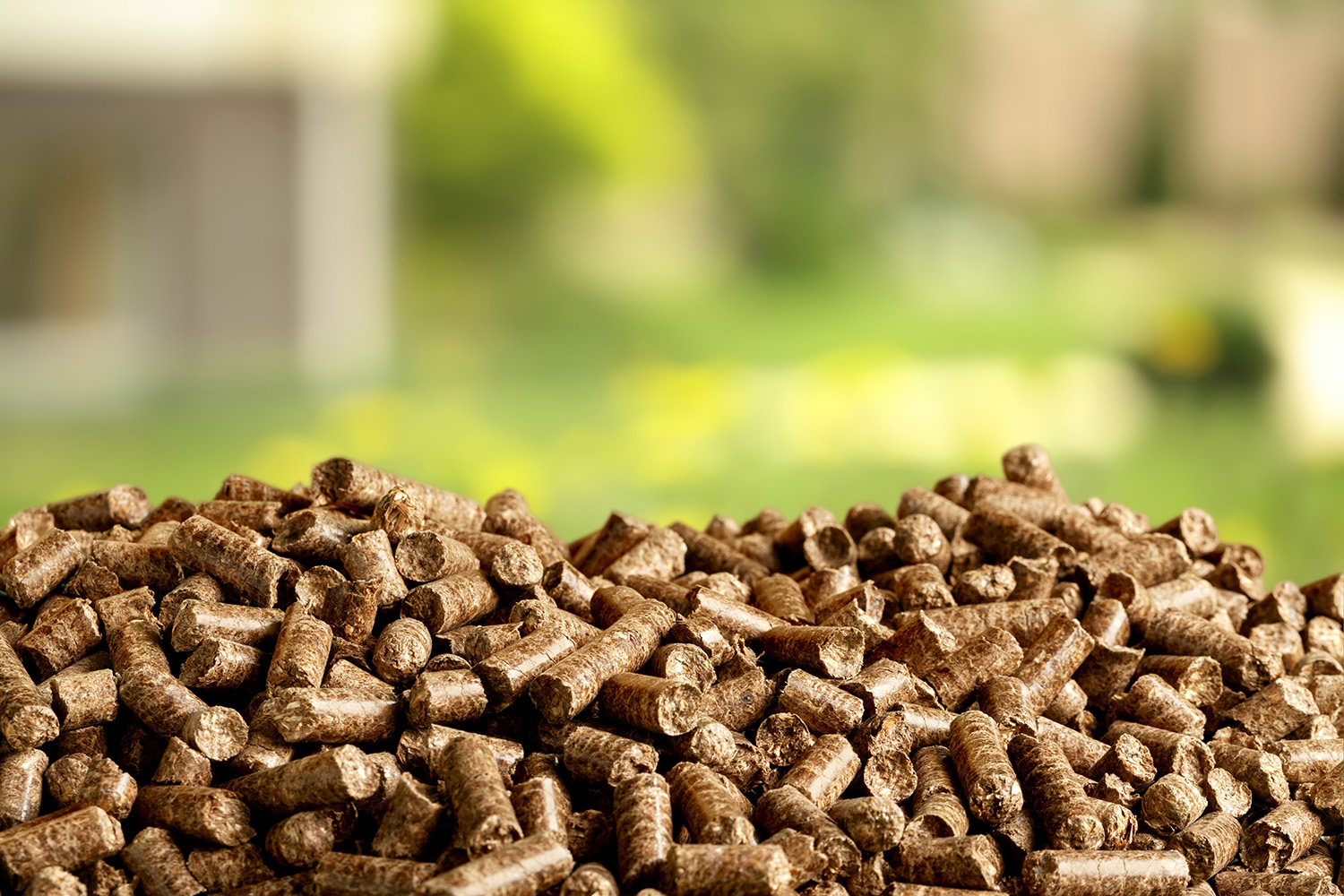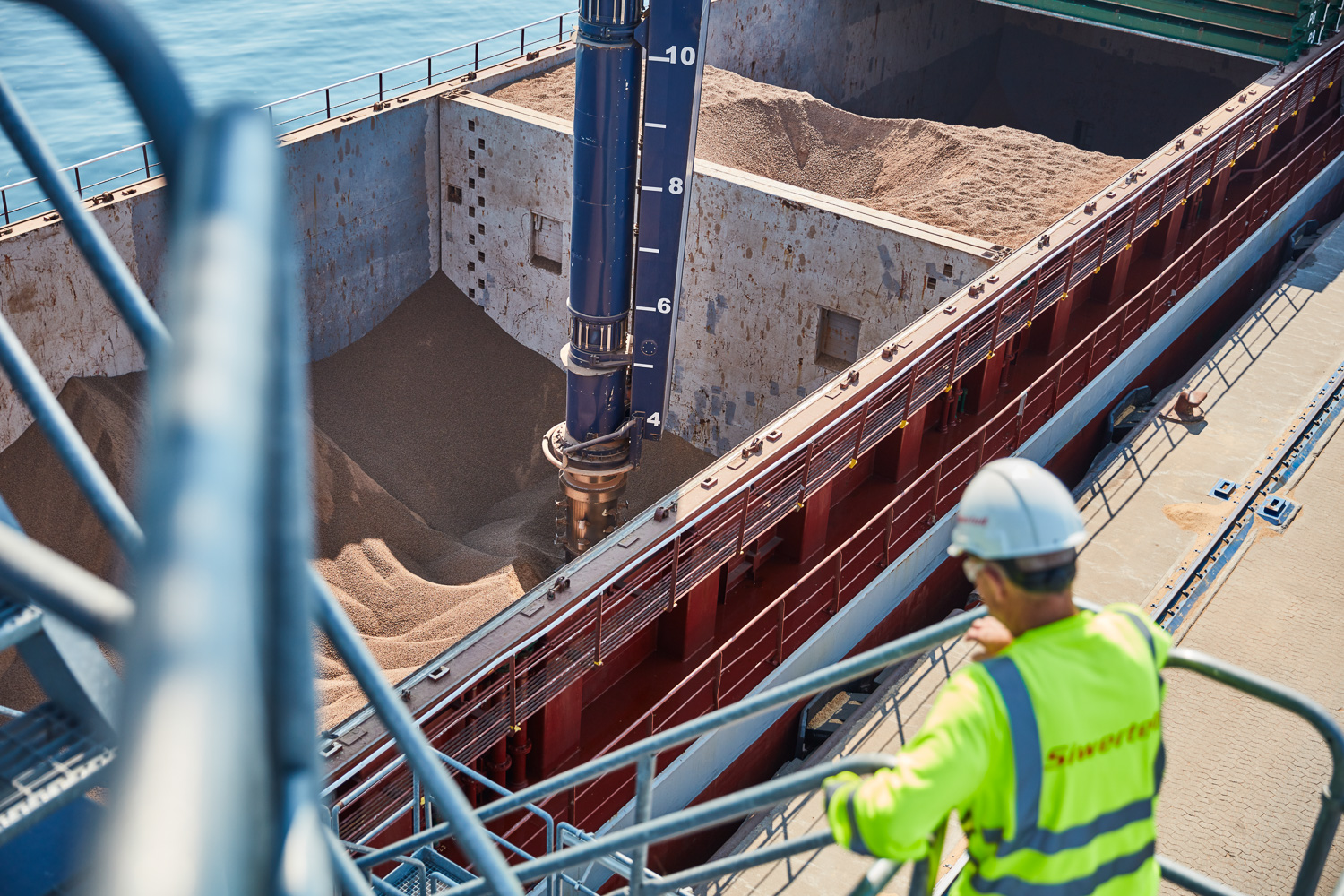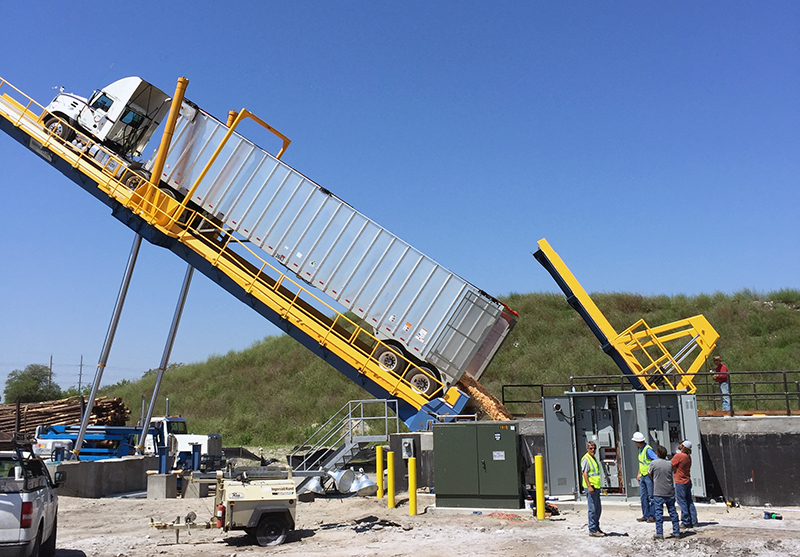Bioenergy
Sustainability drives bioenergy boom
As the world shifts to a more sustainable future, renewable resources, bioenergy and biofuels will take center stage, along with the bioenergy solutions and conversion technologies required for bioenergy production. Bruks Siwertell is geared for this change, and already has a long history of delivering proven bioenergy solutions that handle and process the wide variety of bioenergy materials needed for this global transformation.
Bioenergy is fuel derived from organic matter, and this includes the huge collection of dry bulk materials, termed ‘biomass’. A significant proportion of global bioenergy comes from wood and wood-based products including logs, wood chips, waste wood residues, bark and hogged fuel, and sawdust. Other sources include animal, agricultural and food industry byproducts and waste; any organic material can produce bioenergy. Our bioenergy solutions, industry knowledge, and processing and handling machinery, enable operators to achieve the highest yields from the bioenergy process.
Biomass boosts industrial efficiencies
Some industries have benefited from the use of bioenergy for decades, while others are new to the table. Industries such as sawmills, the pulp and paper sector, and particle board and panelboard manufacturers often use their own bioenergy resources, such as wood-processing by-products, to fuel their production processes, or buy-in similar when demand outstrips this supply. This has a huge positive impact on the efficiency, operational profitability and environmental sustainability of a facility.
Other manufacturers and power-generation facilities are also looking to biomass as a renewable source of bioenergy. Biomass, however, needs an expert eye as it comes with a number of challenges and critical characteristics that need to be considered during bioenergy processes, production and handling.
For example, organic matter is subject to microbial action when stored for any length of time. Also, compressed biomass pellets are delicate and need to be protected from moisture; they generate dust emissions when handled, and have a tendency to self-ignite; all factors that need to be mitigated throughout the bioenergy process.

Bioenergy expertise at every stage
We offer bioenergy solutions and biomass processing and handing technology that can be configured to suit the unique requirements of each facility at every link in the bioenergy chain. Our machines have a global reputation for reliability and performance. They reduce fiber losses, minimize operating and maintenance costs, and deliver optimal production capacities and profitability.
Biomass raw materials frequently pass through processing machinery and preparation systems to ensure that fibers are in an optimum condition for downstream processes. They can be specifically destined for bioenergy production or for use in other fiber-dependent industries such as pulp and paper, packaging and panelboard manufacture.
Whatever their use, we have a wide range of wood-processing technology designed for fiber preparation, including Bruks Ørsted’s Avedøre power station and WSM Drax power station in the UK milling and grinding machinery.
Fiber preparation systems
Our specialized WSM grinders and hogs maximize yields from raw biomass materials. They are simple to operate and offer highly-efficient bioenergy processing. WSM milling equipment includes innovative design features that delivers high-volume production and reliable operation with reduced labor, maintenance, and operating costs.
Like all our technology, WSM fiber preparation systems offer proven reliability in service. Hundreds of long-term installations can be referenced in the most rugged applications around the world. In addition to large diameter stumps, round wood, and branches, WSM milling, grinding and wood-processing technology can convert other materials such as storm debris, land clearing, woody biomass, sawmill residuals, sawdust, wood shavings, wood chips, forest residuals, used wood, and other wood residues into biomass feedstock.
Titan machinery needed for hardest to handle biomass
WSM grinding, screening, cleaning, and milling equipment enables the production of high-quality biomass fuel and other valuable finished fiber products from varied feedstock. This includes very difficult to process biomass materials, such as stumps and root balls.
Converting these challenging wood residuals into biomass feedstock requires exceptional machinery. With our WSM heavy-duty Titan horizontal grinding system, it is possible to successfully process these incredibly dense wood materials, and transform large diameter stumps, round wood, and branches into valuable biomass.
The Titan grinder offers almost a 210-degree open screen area so that larger materials can be processed efficiently at high production volumes. In a typical system, the Titan grinder includes core components such as a heavy-duty chain infeed conveyor and an extra-large pivoting feedroll.
The in-house designed feedroll delivers a superior climbing ability for large or bulky pieces, an extra-large feedroll opening, and the ability to operate the massive rotor in a combination of up-stroke or down-stroke rotations, which delivers exceptional wood-processing results.
Bruks Siwertell offers a solution-oriented approach, we work to create long-term partnerships with our customers and configure installations to meet their individual capacity requirements. Our fully integrated systems can include grinding, pre- and post-screening, conveyors, access platforms, structures, and a range of control options to ensure that every facility operates at peak performance.
WSM machinery can be supplied as stand-alone equipment, or delivered as a turn-key installation. For example, a complete WSM fiber-processing system can be designed for capacities up to 100 metric tons per hour.
Bioenergy expertise at every stage
Bruks Siwertell offers market-leading bioenergy solutions. It has the knowledge, equipment and expertise to help industries and operators throughout bioenergy production, from processing raw materials, to manufacturing facilities and to ports. These capabilities underpin the global trade in bioenergy, and ensure the supply of raw materials required for bioenergy processes and production.
In the port, Siwertell ship unloaders have long-served the biomass industry, with high-capacity ship unloading installations securing pellet fuel supplies to power-generation facilities globally, including biomass for Ørsted’s Avedøre power station in Denmark and the Drax power station in the UK.
READ CUSTOMER CASES ABOUT SHIP UNLOADING OF BIOMASS

Wood is the largest material that our machines handle. Our Bruks wood-processing equipment is a feature of many bioenergy plants and has been closely connected with the growing North American timber trade for decades.
Today, there are Bruks installations all over the continent dedicated to loading, unloading, storing and reclaiming, processing and transporting wood products like bark, wood chips, biomass pellets and sawdust.
Bruks disc and drum wood chippers, milling and grinding machines and waste wood-processing hammer hogs are well-established in the global timber market. The size and the volume of the required wood particles dictates which machines are suitable; Bruks Siwertell’s wood chipping machinery range can chip wood from the forest through to complex high-capacity wood-processing arrangements using multiple machine types.

Fast, efficient truck unloading
A flexible and efficient way to transport the huge volumes of processed wood chips or other free-flowing materials such as bark, sawdust, shavings, husks, and peanut hulls is via bulk trucks.
Bruks Siwertell has a unique truck unloading portfolio that focuses on the fastest, most efficient methods for discharging both end-dumping and self-unloading bulk trucks, so that onward processing is as effective as possible. Our Bruks truck dumper systems consist of a tipping platform, outfitted for different bulk truck trailer types, as well as a variety of receiving hoppers.
Most producers opt for an end pivot system to provide a gentle feed truck-tipping platform, reducing dust emissions. The trucks are unloaded as the tipping platform pivots up to tip the contents of the truck into a receiving hopper.
Hoppers are typically designed to store at least two truckloads of material and can have articulating or static covers, specially designed to prevent any dust escaping into the surrounding environment. They can also have dust collectors, which reclaim and collect material to form more biomass pellets. Key to the dust collection process is keeping the environment dry, as introduction of moisture at this stage could compromise pellet production later.
The challenge of huge volumes
Bioenergy production and biomass demand is growing, particularly in the industrial pellet sector. The vastness of some wood and fuel yards indicates the huge volumes of biomass and raw materials needed to keep these industries in business. Factor in the many challenges of storing, handling and reclaiming organic material, and you can begin to see why woodyard design, state-of-the-art technology and effective maintenance regimes are so important in the bioenergy production process.
Varying moisture contents and differences in densities, fiber properties and calorific values are just some of the considerations. Also, most forms of biomass are very dusty, prone to catch fire or in fact self-ignite, and will freeze as well.
Bruks Siwertell’s capabilities are well-recognized in this sector and our storage and stacker reclaimer systems form part of our bioenergy solutions. Our automated systems set the industry standard for high-volume material storage and reclaiming.
The circular giants
Stacker reclaimers are a combination of technologies that pile and then retrieve dry bulk materials for onward conveying in a very efficient, controlled way. They also blend material, which is particularly important for organic commodities such as wood chips, bark or sawdust, to reduce fiber losses from microbial action and heat build-up in the pile. Automated pile stacking and reclaiming produces layers of materials on the pile, then effectively blends them as they are reclaimed. Spikes of variability are smoothed as the materials are homogenized.
For the bioenergy and biomass market, huge wood chip piles can be built continuously in a 360-degree rotational pattern, using Bruks equipment such as a large circular blending bed stacker reclaimer (CBBSR). Successive layers of material are laid down using a stacking conveyor that pivots through a complete circle as the pile grows.
The automated technology offered by the CBBSR enables the oldest materials to be reclaimed first, ensuring consistent quality throughout, and excellent performance at the plant.
 Bruks-Siwertell
Bruks-Siwertell
